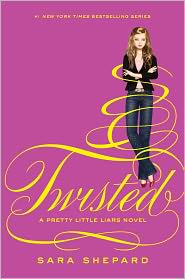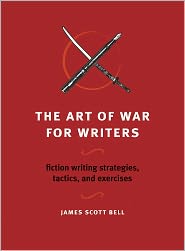Inspired by Kristi's post yesterday, here's some signs that I'm writing a new book:
1. I can't hear you. What's that? Were you saying something to me? So sorry, I was thinking about that plot twist, and what it's like for my character to experience this whole new world I'm building her, and how I'm going to manage to squeeze in a kissing scene.
2. Flip-flop. Chances are I'm somewhere in the middle of W I D E mood swings from OMG this is the crazy-coolest most awesome idea ever!!! to What was I thinking? HOW WILL I EVER MAKE THIS WORK???
3. Gone missing. You can't find me anywhere. Not on g-chat, or twitter. I'm slow to answer emails. Hopefully because I'm typing away on that story or more likely, because I'm avoiding my computer like the plague.
So there you have it. My dirty little secrets revealed! How about you? Are you better behaved than me when starting a new project?
Wednesday, April 27, 2011
Tuesday, April 26, 2011
Pretty Little Liars Sneak Peeks!
This past Earth Day (yes, I am woefully slow) ABC Family and Pretty Little Liars sent me a nifty trowel, some awesome yard work gloves, AND a special link to another sneak peak of the new season of Pretty Little Liars! Complete with info on whose shirt is coming off, and other vital info. Check out the video below, or go to the special link they sent me here for even more:
http://abcfamily.com/plantinglies

Who else is excited for the new season?? PLUS Did you know there are TWO new PRETTY LITTLE LIARS books coming out this year? I am all kinds of excited about this. These books were my crack last winter I read the first seven in like a week. The first one, TWISTED comes out July 5th, 2011.

So far there's no blurb up yet, but I can't wait to see what it's about and if the show has influenced the new book at all!
Who else is excited for the new season?? PLUS Did you know there are TWO new PRETTY LITTLE LIARS books coming out this year? I am all kinds of excited about this. These books were my crack last winter I read the first seven in like a week. The first one, TWISTED comes out July 5th, 2011.

So far there's no blurb up yet, but I can't wait to see what it's about and if the show has influenced the new book at all!
Labels:
pretty little liars,
sneak peek
Wednesday, April 20, 2011
When "I feel" Feels Distant
One of the great things about first person POV is its immediacy. First person takes the reader right into a character's brain, right into the middle of whatever they're experiencing. But sometimes, the very thing that's supposed to pull us into the scene, takes us out.
I think it's easy when writing in first person, to slip into a rhythm where, particularly when we're describing action we're constantly making "I" statements like, I feel, I see, I hear.
These "I" statements can be distancing to your reader. (Not to mention they get pretty tedious when almost every sentence in a paragraph starts out with I.)
Think about it. When I read:
Cold water trickles down my back.
I shiver because I feel cold water trickling down my own back. It's subliminal. We think to ourselves this way, so when reading a sentence that is something we would say in our own mind, we react as if it's happening to us.
Now, when I read:
I feel cold water trickle down my back.
I am forced to take a step back. I picture the narrator shivering as she feels the cold water. Because it's her experience. She's telling me what's happening and I have to picture it. So suddenly, I am sympathetic, and I'm still interested to know what happens next, but I'm not right there in the moment with her.
See the difference?
Of course there are times when you want to create that bit of distance, or an I statement is really the only way to drive your point home, but don't forget to pull your reader as close to the action as possible whenever you can.
I think it's easy when writing in first person, to slip into a rhythm where, particularly when we're describing action we're constantly making "I" statements like, I feel, I see, I hear.
These "I" statements can be distancing to your reader. (Not to mention they get pretty tedious when almost every sentence in a paragraph starts out with I.)
Think about it. When I read:
Cold water trickles down my back.
I shiver because I feel cold water trickling down my own back. It's subliminal. We think to ourselves this way, so when reading a sentence that is something we would say in our own mind, we react as if it's happening to us.
Now, when I read:
I feel cold water trickle down my back.
I am forced to take a step back. I picture the narrator shivering as she feels the cold water. Because it's her experience. She's telling me what's happening and I have to picture it. So suddenly, I am sympathetic, and I'm still interested to know what happens next, but I'm not right there in the moment with her.
See the difference?
Of course there are times when you want to create that bit of distance, or an I statement is really the only way to drive your point home, but don't forget to pull your reader as close to the action as possible whenever you can.
Labels:
show don't tell,
writing tips
Monday, April 11, 2011
Monday Inspiration
I SO needed this today. How does the universe always know?
"The difference between taking baby steps and acting small, is that one prepares you for success, the other for a fall."
- Notes From The Universe
- Notes From The Universe
Labels:
courage,
inspiration,
just do it,
notes from the universe
Wednesday, April 6, 2011
It's Not Cheating If It Helps

So I was perusing my copy of The Art of War For Writers by James Scott Bell, looking for tips as I prepare to start my brand new book from scratch and I came across this suggestion from Chapter 20:
Bell suggests that you list the things you know you need to improve in your writing on notecards, or post-its --a sort of cheat sheet-- and keep them where you can see them when you're writing.
Some of the notes that he uses personally include:
Emotion! Emotion! Emotion! - Which reminds him that his primary objective is to give readers an emotional ride.
Be Dialogue Happy - Reminding him to let the dialogue flow, he can always edit it later.
And my favorite:
The Second Right Answer - This one could be a post all on its own. Bell suggests that we should learn to stop at every major creative decision in our story (for example: plot turning points) and think of several options before moving forward. This is because usually, the first idea we have (the right answer) for "what happens next" is the obvious, or cliche, or standard way of going.
This is something I actually do when plotting. I ask myself, what is the obvious expectation here, and what are my other options. Then I pick the one that's most interesting, or surprising, or emotional, that makes sense for my characters and my story.
I think this is a great idea and am definitely going to make up a few reminder notes for myself. Other than what Bell has listed, I know I'll have one that says "Description! Description! Description!" because I tend to leave that out of my draft.
What about you? Do you make reminders for yourself? What would be on your post its?
Labels:
book recommendations,
writing process,
writing tips
Subscribe to:
Posts (Atom)
